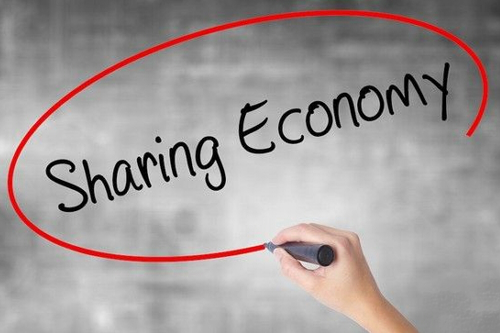Why the Sharing Economy Still Hasn’t Reached its Potential
Tarun Wadhwa
Next month, the travel marketplace AirBnb will turn ten years old – marking a major milestone for the Sharing Economy.
These platforms have now grown into a massive, global industry facilitating hundreds of millions of transactions every day. While its corporate roots are in the United States, the Sharing Economy is booming in dense urban environments everywhere – with China taking the lead. Nearly every country now has some version of it, but still, they are only scratching the surface of what is possible.
Trillions of dollars of assets remain underutilized and the original mission to create a cleaner, cheaper, and more equitable world has yet to be achieved. In order for the Sharing Economy to reach the next stage of growth it will need to directly confront the issues of uneven quality. To do that, it needs to borrow an approach from the industries it has set out to disrupt.
We need trade groups, institutions, and firms working at a global level to conduct audits, set standards, and disseminate information about how to operate effectively. But it’s not a matter of building more bureaucracy to move the industry forward. Instead, it’s about introspection and collaboration.
Take for example the issue of background checks and reputation scores. As we’ve seen over and over again, there are still major problems to be resolved in this area. Screening users relies heavily upon the quality of identity information available. Third party services that help with the process are rife with their own issues and rating systems are opaque, inconsistent, and easily gamed. There’s thousands of startups and companies around the world all trying to solve the same problem at the same time.
Everyone is running their own experiments, but nobody is collecting the results. Imagine instead if these organizations were to address the problem by coming together to spread best practices, establish data-sharing protocols, and codify procedures to increase safety and trust. By tackling common pain points, we can grow the market while achieving higher acceptance amongst consumers and less skepticism from regulators.
Here are five key areas where I see cooperation leading to a stronger industry:

1. Reducing fraud and harassment: Nothing is more toxic to a platform than when somebody is put in danger because of a preventable oversight. Right now, frauds exist across multiple platforms, but that information stays in silos. To mitigate this companies can privately share black-listed accounts, create ways to make ratings portable, and develop open-source fraud detection techniques.
2. Rethinking employment interfaces: From invoicing, to payments, to human resources – we are in the midst of redefining the processes of work. Smart contracts can automate payments, massive amounts of data can be used for insurance products, and the app is becoming your boss. But technology needs to be deployed carefully here. Companies like Uber use psychological tricks to keep their drivers on the road, and that can be harmful. The industry needs to create ethical guidelines to determine the healthy balance between constructive gamification and outright manipulation.
3. Managing and maintaining assets: We’re all a little uneasy about sharing and using physical items when we can’t verify their condition. This makes many businesses prohibitively expensive. The industry would be much better off if our need to trust wasn’t so necessary. Software, sensors, and cryptographic tokens can all play a part in forming a new level of transparency where an object and can be tracked and examined in real-time.
4.Integrating with cultural and legal systems: Instead of over-running local governments with lobbyists, companies should shift their tactics. The industry has been accepted by the public – and a heavy-handed approach isn’t as necessary anymore. But our expectations of what these companies need to do has also changed; we are longer tolerating platforms that avoid taxes and liability. The industry should embrace regulation by collectively developing suggestions and publishing resources for how to balance innovation, accountability, and local sensibilities.
5. Mitigating environmental damage: The promise of the Sharing Economy was to make the world more sustainable – instead it’s accelerating consumption, degrading consumer behaviors, and creating an enormous amount of waste as a by-product. Companies should cultivate tactics together on how they could reduce packaging, materials, and emissions. This is not an altruistic endeavor, it’s in their own interest – they need to get ahead of this problem before the debt becomes too large.
When the industry was dominated by startups and marked by fierce competition, survival was the key consideration. But things have changed now, and the needs are different. If we want to reach the next billion users, we’ll need a different set of strategies than the ones that got us here so far.








